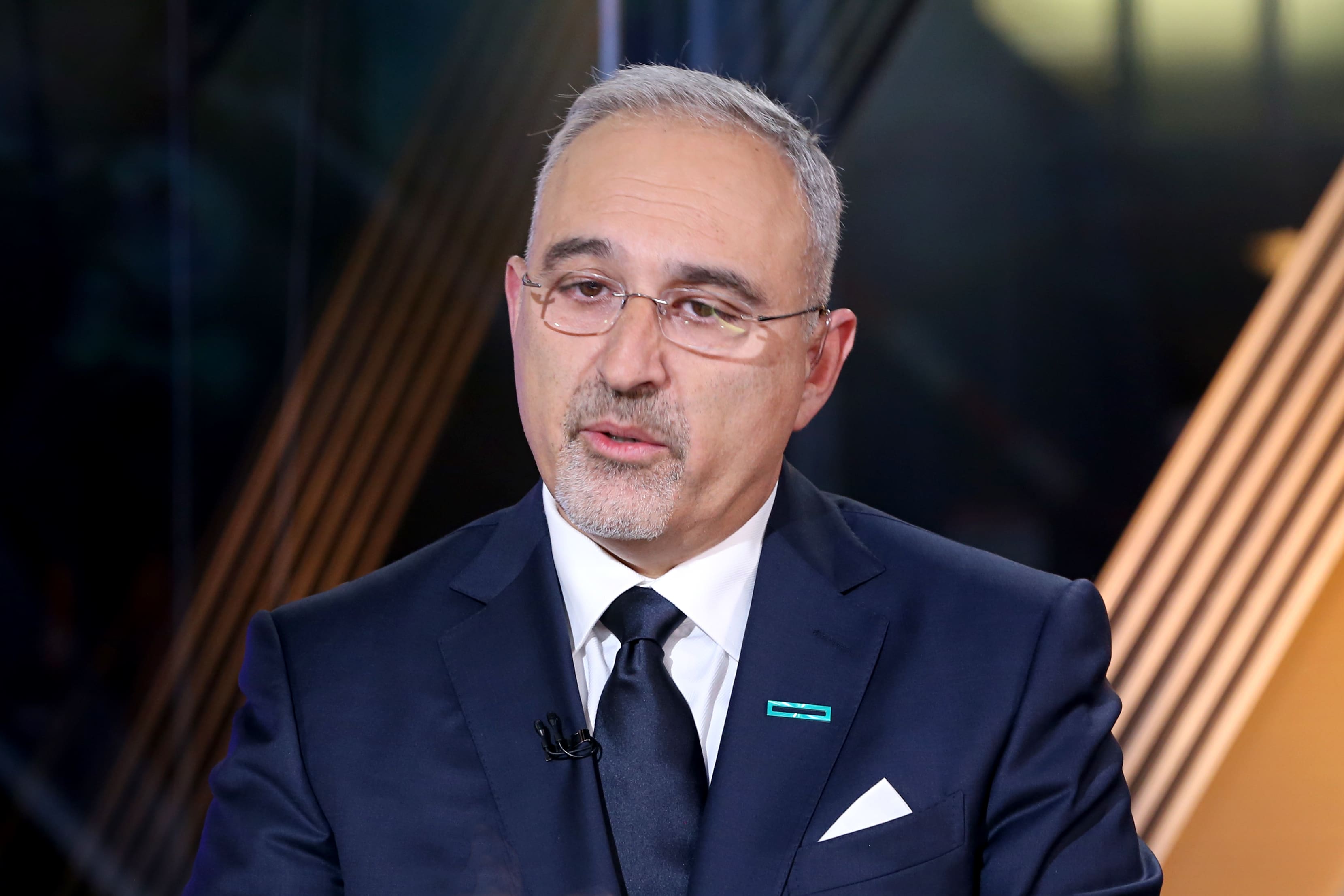Antonio Neri, President and CEO of Hewlett Packard Enterprise.
Anjali Sundaram | CNBC
Hewlett Packard Enterprise is the latest tech company to shift its focus away from Silicon Valley, announcing Tuesday that it will relocate its headquarters from San Jose, California, to Houston, Texas.
“HPE’s largest U.S. employment hub, Houston is an attractive market to recruit and retain future diverse talent, and is where the company is currently constructing a state-of-the-art new campus,” the company said in its fourth quarter earnings release. It’s unclear how many employees the move will affect, though the company said no layoffs will be with the move.
HPE will keep the San Jose campus, and will consolidate some of its Bay Area sites there, it said.
For its fourth quarter, the company reported:
- Revenue: $7.21 billion vs $6.88 billion expected, according to a consensus estimate from Refinitiv.
- Earnings: $0.37 per share (adjusted), compared with $0.34 expected, as per Refinitiv.
The company also raised guidance for the 2021 fiscal year. Shares were little changed in after hours trading.
The coronavirus pandemic has given a number of tech companies and prominent Silicon Valley figures an excuse to exit California. Without many needing to go into an office every day, many are questioning the high cost of living and the state’s hefty taxes amid a broader shift to remote work.
Data analytics software company Palantir Technologies moved its headquarters from Denver, Colorado from Palo Alto, California, earlier this year. The company’s co-founder Joe Lonsdale followed suit, and announced last month he was moving the headquarters of 8VC, his venture firm, from San Francisco to Austin, Texas.
Dropbox CEO Drew Houston has also reportedly decided to move to Austin. Dropbox said in October it will stop asking employees to come into its offices and instead make remote work the standard practice. For employees who need to meet or work together in person, the company is setting up “Dropbox Studios” in San Francisco, Seattle, Austin and Dublin when it’s safe to do so.
Some companies are also allowing employees more flexibility with where they work, while retaining office space.
Twitter and Square are letting employees work from home “forever,” while Microsoft said workers will have more flexibility to work from home. Facebook CEO Mark Zuckerberg predicted in May that 50% of employees will be working remotely within the next decade.
